Marea Albarino 2018
| Country: | United States |
| Regions: | California California (Monterey) |
| Winery: | I. Brand and Family |
| Grape Type: | Albarino |
| Organic: | Yes |
| Vintage: | 2018 |
| Bottle Size: | 750 ml |
When the founding fathers of the Napa Valley carved out new sub-AVAs (American Viticultural Areas) in the 1980s, Soda Canyon Ranch was not yet on anyone’s map. The vineyard is neighbored to the northwest and west by the winegrowing districts of Stags Leap District and Oak Knoll District, respectively, which were among the early pioneers of California Cabernet Sauvignon to attain global fame. To the northeast and southeast—and further off the beaten path—were Atlas Peak and Coombsville, thought to be the next frontiers for the emerging wine-producing region.
With richness and depth of flavor, the 2018 Timeless Napa Valley is the embodiment of patience and attention to detail. Decades of experience at Soda Canyon Ranch allow winemaker Nate Weis and team to highlight the individual merits of each block. Combining the strongest lots from each resulted in a refined and harmonious bottling.
In 2018, the diurnal shift at Soda Canyon Ranch produced a darker, lusher fruit profile of Cabernet Sauvignon. Simultaneously, the overnight recovery periods resulted in expressive and refined Merlot, giving the wine a pleasant profile of bright, red fruit. With an extended harvest window, the signature, plush density and structure of Petit Verdot is also prevalent in the final blend. Cabernet Franc thrived in 2018 with its predilection for the cooler soils and the climate of blocks 5, 6, 16, 20 and 21—areas we call the Transition Zone and Hardpan Alley. The variety’s floral and tobacco-like aromatics are accentuated, and its more aggressive nature for back-end tannins tamed.
Once blended, the 2018 vintage rested in French oak barrels for 16 months, developing flavors of vanilla and baking spice. Velvety tannins dance across the palate of bright and lingering cassis. With a smooth finish, this is a comforting wine of elegance and depth—a sophisticated expression of the sedate summer.
Review:
This is a little old-school and shows lots of dark berry, chocolate and dried fruit. It’s full, dense and layered with fleshly sensibility. Velvety texture.
-James Suckling 93 Points
It is hard to imagine with the Lithology range receiving 298 points out of 300 for the three single-vineyard wines, that there could possibly be a wine above them. But there is, and it is our Estate wine. Blended several times very intently by masters of their craft Philippe Melka and Michel Rolland, this is the ultimate expression of our house’s work. Positive, full-bodied, and quite powerful, there’s the expected crème de cassis and blackberry from St. Helena Cabernets, with mineral, herb, subtle tobacco and vanilla, plum skins, and pie crust, purple flowers, forest-conifer notes, and very fine tannic structure. It is a magnificent, and magnificently elegant expression of this house, and when asked recently, Monsieur Rolland stated plainly to me, “oh yes indeed – this is the best one, the best yet…”
Review:
The flagship 2018 Cabernet Sauvignon Alejandro Bulgheroni comes from a selection made by winemakers Philippe Melka and Michel Rolland, mostly from Rutherford and Oakville fruit. Aged 20 months in 78% new French oak, it has incredible aromatics of black and blue fruits, spring flowers, and graphite to go with a massive, full-bodied, concentrated style on the palate that somehow stays graceful, weightless, and elegant. This tour de force in Napa Valley Cabernet Sauvignon is guaranteed to put a smile on your face over the coming 20-25+ years.
-Jeb Dunnuck 99 Points
Alejandro Bulgheroni Lithology Beckstoffer Las Piedras Cabernet Sauvignon is made from 100 percent Cabernet Sauvignon.
From a St. Helena vineyard planted by early Napa settler Edward Bale more than 150 years ago, and later serving as the estate vineyard for the area’s first winery built by Henry Pellet in 1860, the Las Piedras site always gives us our prettiest wine. When placed next to Dr. Crane and To-Kalon wines, the Las Piedras show a certain elegance, with a very graceful entry and finely detailed complexity. We produce it with at least 75% new French oak, so there is a floral, spicy, and vanilla accent to the intense red and black fruits, cassis, and black cherry liqueur. What distinguishes this bottling is the beautifully fine tannins, delicate texture, and stunning purity. (Less than 100 cases made.)
Fermentation 70% Oak, 24% Concrete, 6% Puncheon
Review:
"The 2018 Cabernet Sauvignon Lithology Beckstoffer Las Piedras Vineyard comes from a world-class site outside of St. Helena and is all Cabernet that spent 20 months in 80% new oak. It offers a touch more red fruit as well ample cassis, spring flowers, loamy earth, and spice-like aromas and flavors. It has a wonderful sense of minerality, ultra-fine tannins, a dense, layered texture, and incredibly purity of fruit. It’s another just about off the charts release from this estate."
- Jeb Dunnuck 98 Points
Argot Chardonnay Sonoma County is made from 100 percent Chardonnay.
Pouring a green-tinted gold, our Sonoma County Chardonnay is a beautiful wine from word go. Radiating from within, a blast of apple/pear fruit informs this wine both aromatically, and on the palate. As flavors unfurl, a progression of orange blossom, pineapple, white peach, and hazlenut are followed by a finish dominated by ginger, baked apple, with a trailing kiss of mint’s freshness. A stunning wine — wholly informed by the perfection of 2018’s growing season — defined by its dichotomy of massively intense flavors, and superb acidity and freshness.
Raised by minimalistic methods, often associated with the classic Chardonnay winemaking techniques of Meursault. With a focus on the coolest Chardonnay region in Sonoma County, 2018’s long, even growing season favored our vineyards’ moderate climate, old vines and deep volcanic soils. These grapes were allowed an extended ripening period on the vine, resulting in perfect balance and concentrated flavors.
Argot Pinot Noir Sonoma County is made from 100 percent Pinot Noir.
Everything you have come to expect from an Argot Pinot Noir, shone through the filter of a textbook-perfect vintage. We simply can not get over the quality of fruit this wine displays! Intense, yet fresh; fruity, yet spicy; brambly, yet juicy; immediate, yet lingering. A Pinot Noir that displays the variety’s natural come-hither attitude, while succinctly capturing its intriguing nature. There are not enough superlatives to describe this wine. Almost too easy to love!
VINEYARD Multiple vineyards throughout Sonoma County, including both valley floor and high-elevation hillside sites
PRODUCTION 600 cases
VARIETAL 100% Pinot Noir
CRUSH Night harvested by hand beginning in mid-September, concluding at our coolest sit on October 13. Cluster and berry sorted by hand, de-stemmed, no crushing
FERMENT 7-day cold soaks, followed by native fermentation in open-top containers, with the grapes fermenting on their skins for an average time of 14 days.
AGING 16 months, French oak barrels, 7% new, remainder once-used. Never racked prior to bottling. Bottled un-fined, unfiltered.
NOTES Singularly great. 2018 was an all-time vintage for California’s North Coast, achieving rarely before experienced heights. A mild summer gave way to Autumnal perfection, allowing cooler areas the opportunity to ripen their crop while chemistries remained perfect. What arrives in bottle is nothing short of a pinnacle representation of Sonoma County Pinot Noir — profound depth of pure, red Pinot Noir fruits, caressing textures balanced by deep minerality and a quenching acidity.
Avennia Red Willow Cabernet Sauvignon is made from 100% Cabernet Sauvignon.
The Red Willow Cabernet is a true blockbuster.
Coming from one specific block of 30 year old vines at this iconic vineyard, then strictly barrel selected, this is the essence of powerful, old vine Washington Cabernet. After all of our efforts promoting the idea of the Bordeaux blend, it would take a pretty compelling argument to suspend that idea and make a 100% varietal Cabernet. In 2016 Red Willow provided us with just that. Each time we tasted it in the barrel, the belief grew that this was something special. Something we can't make every year. In the end we were won over, and decided to make a limited amount of this wine. But don't be fooled, as this too is a blend and a selection. Each year as we are tasting the grapes as harvest approaches, we notice that the vines near the bottom of this long, steep west-facing slope, are a little different. The vines at the bottom are in a little richer soil, and get a little more water, so we pick them separately, sometimes even a week or ten days apart, and keep them separate in barrel.
This wine is all from the top of the vineyard, with its lower yield and poorer soils giving more concentration and interest. Then further, nearly every combination of new and used French oak barrels were trialed to find the best blend. It's not enough just to use the four best barrels, but to trial each combination to see how they complement each other. For a wine with this much mass, 100% new French oak was used for the first time at Avennia. It is a wine that needs a little cellaring to start, but should last a very long time.
Review:
The flagship Cabernet, the 2018 Cabernet Sauvignon Red Willow Vineyard is all varietal, from old vines in a great vineyard in Yakima Valley, that spent 20 months in 80% new French oak. It reveals a deep purple hue as well as a backward, brooding nose of smoked blackcurrants, tobacco, scorched earth, and violets. It has beautiful richness yet takes plenty of coaxing to open up. On the palate, it's medium to full-bodied and has a nicely textured, balanced mouthfeel, plenty of tannins, and outstanding length. It's mostly potential at this point and is going to benefit from at least 4-5 years of bottle age, but my money is on it having 20+ years of prime drinking.
-Jeb Dunnuck 96 Points
Marea Albarino is made from 100% Albariño
This 100% Albarino is produced from fruits grown in Kristy Vineyard, on the western bench overlooking the Salinas River on broken sediment of ancient sea beds. Kristy is special because Albarino in the vineyard reaches full phenological ripeness at low potential alcohol and natural, bright acidity. Cold fermented in stainless steel for aromatic intensity.
Bright, fresh and crisp with notes of lemon curd and tangerine. On the palate it shows elegant texture and bright acidity on the finish.
Picked under 22 brix, 2/3 whole cluster pressed, 1/3 destemmed and left on skins for two days. Aged on the lees for four months and then sterile filtered.
Pairs with oysters, grilled fish, spicy cuisines.
They did not set out to make these wines. They discovered great vineyards at the edge of sensible farming and decided to bring them to light.
The farther they looked, the more they found – remote, challenging vineyards, with hard depleted soils, and intense sunlight tempered only by the coastal breeze. Vineyards capable of producing only the most idiosyncratic wines. Their goal as winemakers is to lightly polish the roughest edges and leave the idiosyncrasy intact. It is here in the back country, filled with individual character, where Le P’tit Paysan comes to life.
Ian Brand's first winery job was in the lab and cellar at Bonny Doon Winery in Santa Cruz. Ian was Vineyard Manager and Assistant Winemaker at Big Basin Vineyards in the Santa Cruz Mountains for four years before he and Heather began their own project.
In the growing sites I Brand Family Winery looks for shallow, rocky soils, good site selection and proper varietal match with the soil and climate. The often overlooked greater Monterey Bay Area has a plethora of underappreciated, rocky vineyards.
Vineyard names:
Fellom Ranch, Bates Ranch, Besson, Summers, Wheeler, Brigantino, Bayly Ranch, Enz, Brosseau, Spur Ranch, Kristy, Quail Run, La Belle Rose, Cedar Lane, Mission Ranch, Escolle, Arroyo Seco Canyon, Los Ositos.
Farming:
Brosseau (cert organic)
Enz (practicing organic, dry farmed)
Besson (dry farmed)
Bates (dry farmed)
Sustainable: Kristy, Bayly, Quail Run, Los Ositos.
- back
Opulent floral top notes carry you into an opaque purple core, imparting aromas of black currants, dark red cherry coulis, cigar box, and allspice berries. Powerful yet soft tannins are balanced with a delightful freshness of acidity. The palate is silky with nuanced flavors of cassis, ripe blackberry, and Morello cherry. The long finish invites you to discover the wine’s evolving layers.
Review:
This is, as usual, a beauty, perhaps more so thanks to a great vintage. It is classically Napa Valley, and classically “house styled” by Aron Weinkauf, with black and blue fruit, supple, approachable tannin structure and great depth of aroma and flavor. That said, keep in mind that this isn’t the winery flagship offering. Even in this price range Lyndenhurst is always a solid value, and is so again – maybe even a little more than usual. Decant well if you crack into this in the near term, or age it for the long term. Contains 10.6% Merlot, 3.8% Petit Verdot, 3.5% Cabernet Franc and 2.9% Malbec. (Rich Cook)
- Wine Review Online 95 Points
A juicy red with black currants and balsamic. Bark and mushroom. Iodine, too. Medium body, creamy texture that tightens at the end. An energy and firmness in the finish.
-James Suckling 94 Points
Bernardins Muscat Beaumes Venise VDN 100% Muscat petits grains (75% Blanc, 25% Red)
Copper/rose hue and ripe soft aromas of orange, spice and flowers. The wine is full bodied with the texture of silk and flavors of orange custard, white peach, pear, apricot, toffee and orange peel.
The vineyards and their terroir are the essence of our wines. This is where everything starts and where we focus our efforts throughout the year. You can’t make great wine without great grapes.
The viticulture is essentially done by hand. Five people work full-time in the vineyards. They are supplemented by seasonal employees who work during bunch thinning and the harvest in order to bring out the very best in our vines. Working by hand and the attention each vine gets are fundamental. Pruning, de-budding, trellising, leaf removal and picking are thus carried out by hand with the utmost care.
We prepare the soil by using good old-fashioned ploughing. Organic compost is made from grape marc (the discarded stalks and skins).
As a way of protecting the plants, we only use phytosanitary products when necessary and within strict guidelines by staggering the treatments appropriately, to minimise the amount of chemicals used. We prefer to use as much as possible manual and organic techniques . Leaving natural grass cover, removing buds and leaves from the vines, preserving biodiversity around the vineyard: olive, almond and cypress trees, wild rosemary and capers.
In the spirit of respecting traditional techniques and the best elements of modern technology, cellar manager Andrew Hall and his winemaker son Romain Hall take family traditions very seriously.
When making our wines, the Muscat de Beaumes de Venise plays a central role and requires great care. After picking the grapes by hand, we press them straightaway to ferment the juice without skins. We don’t add any yeasts and keep the alcoholic fermentation in check by temperature control. Vin Doux Naturel winemaking involves stopping fermentation to preserve the grapes’ natural sweetness. During vinification, we watch the vats day and night and add the fortifying spirit just at the right moment. At this stage, the wine’s final balance is at stake. The wine is then aged in stainless steel tanks for 6 months before bottling.
Review:
"Butterscotch and apricot jam aromas. A lighter vintage of this cuvée, but very fresh and drinkable, and the best Muscat of the vintage by far. 110g/L residual sugar. In conversion to organic. - Matt WALLS"
- Decanter (November 2024), 91 pts

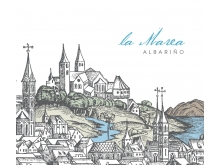

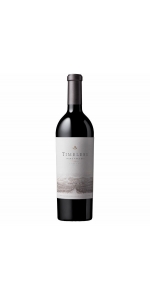
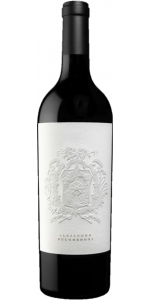
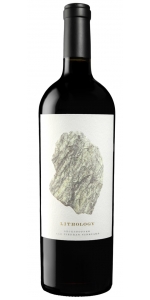
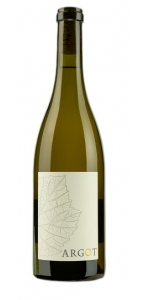
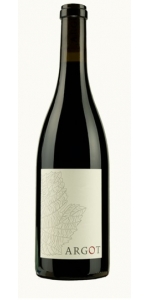
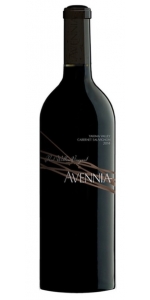

-75x150.jpg)

